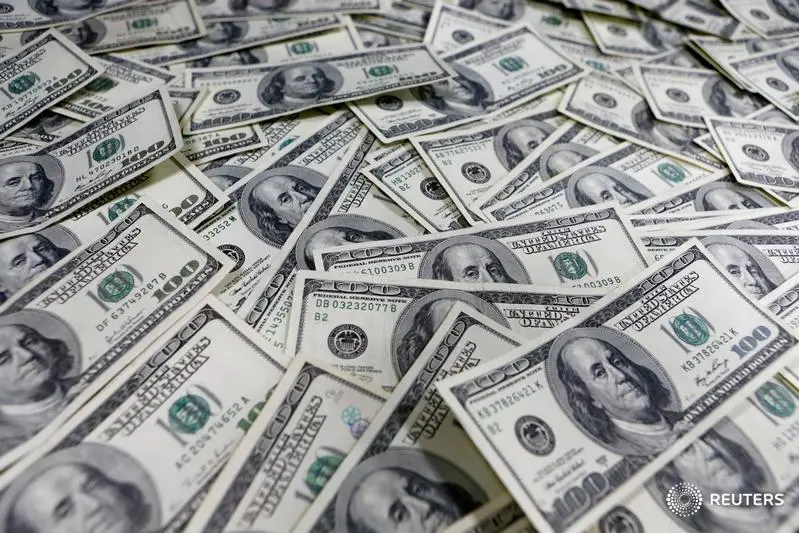PHOTO
LONDON- The dollar hit its highest level in a month as economic and political uncertainties swept through Europe and Asia, pinning down most major currencies like the euro and the yuan.
Worries over German manufacturing, the impact of a deepening trade war on Asian economies and deepening concerns over Brexit and European parliamentary elections have broadly curbed risk appetite and sent investors to perceived safe-haven assets.
While the United States is not without its own worries -- a trade conflict with China being a major one -- investors see the greenback as a relative safe haven because of its preeminence in the global economy and the extra cushion of having some of the highest interest rates in the developed world.
The dollar hit a high of 98.262 against a basket of six major currencies .DXY , its highest since April 26, when it hit a two-year peak of 98.33. If it maintains its path, the dollar will be on track for a fourth consecutive month of gains.
"Certainly the dollar has been acting like something of a safe haven even though the Fed has been more dovish than has been expected," said Neil Mellor, FX strategist at BNY Mellon.
"I think what's happened is that the Fed has been 'out-doved' by other central banks one by one, the latest being the RBA [Reserve Bank of Australia] in Australia, and that has allowed the dollar to strengthen," he added.
Fuelling this dovishness is a softening of the global economy and there was further gloomy news on this front on Thursday.
Activity in Germany's services and manufacturing sectors fell in May, a survey showed on Thursday, reflecting the toll that unresolved trade disputes are having on Europe's largest economy.
While a similar figure for the euro zone as a whole was healthier, it still undershot expectations across the board, hurting the single currency.
The euro EUR=EBS dipped to its lowest in a month at $1.1129, down 0.2 percent on the day, before recovering slightly to $1.1135.
With concerns over the global economy looming large, investors have ramped up their short bets on the euro to their highest levels in more than two years.
Compounding these worries, European parliamentary elections began on Thursday with eurosceptic parties expected to poll well, worrying investors about the single currency's stability.
Britain's political crisis deepened, with prominent Brexit supporter Andrea Leadsom resigning from the government on Wednesday, piling pressure on Prime Minister Theresa May after a new Brexit gambit by May backfired and fuelled calls for her to quit.
Sterling was within a sliver of slipping below $1.26 for the first time since early January.
The British currency is also set for its fourteenth straight day of losses against the euro - its longest losing streak in the 20-year history of the single currency.
YEN GAINS
The yen also advanced broadly on Thursday as persistent U.S.-China trade fears and Brexit concerns fanned risk aversion, lifting the safe-haven Japanese currency.
The yen was 0.1% firmer at 110.23 to the dollar, having pulled back from a two-week low of 110.675 plumbed on Tuesday.
The Japanese currency also rose 0.2% against the euro, added 0.5% versus pound and advanced 0.3% on the Australian dollar.
Reports that the United States could impose restrictions on Chinese technology company Hikvision renewed market jitters about trade on Wednesday, reversing a relief rally that followed Washington's move to temporary ease curbs against Huawei Technology Co Ltd.
(Reporting by Abhinav RamnarayanEditing by Raissa Kasolowsky) ((mailto:saikat.chatterjee@thomsonreuters.com; +44-20-7542-1713; Reuters Messaging: rm://saikat.chatterjee.reuters.com@reuters.net))





















